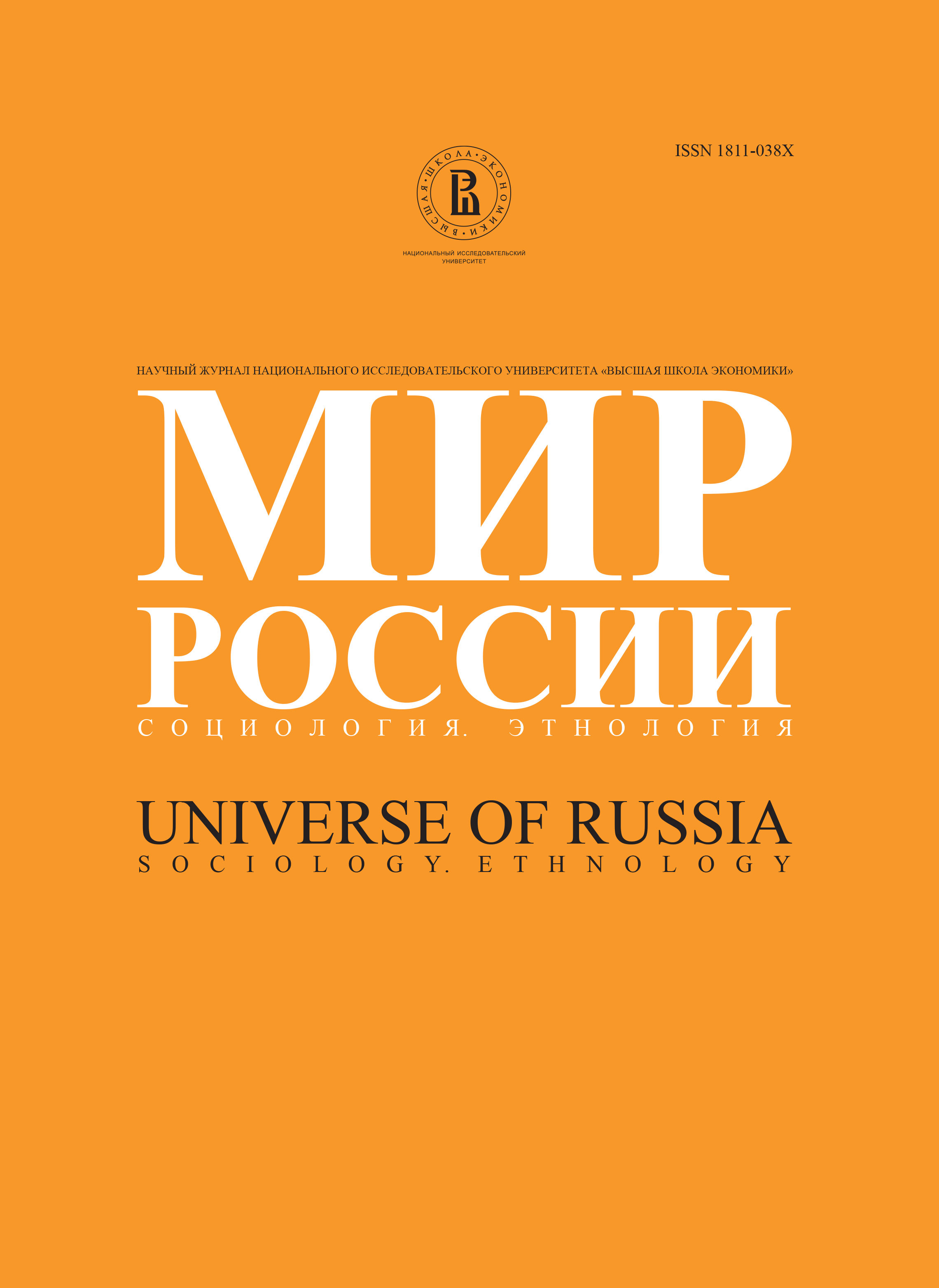Everyday Inter-individual Impersonal Trust as a Business Activities Factor
Abstract
Recently the category of trust has been actualizing in social and humanitarian knowledge. This process has become one of the results of mutual transfusion of economic and social sciences. On the one hand, economists are more and more interested in how experience and knowledge, which human beings acquire in everyday life, influence their economic activities. On the other hand, social scientists think more often about how human ability to form teams for reaching common targets can differentiate various social groups and communities through time and space with respect to forms of their economic behavior. The subject for this study is everyday trust, i.e. not just a single action of trust – e.g. voting for a political party, but everyday trust in adherence to certain interaction conditions. Precisely this type of trust makes it possible to plan business activities, like continuous transactions require mutual trust from its participants.Precisely such understanding of trust is the subject for F. Fukuyama research – it is economic efficiency condition which makes it possible for a group “of individuals, which – having moral affinity as foundation – open for themselves a prospect of efficient joint work”.
Russian specific character of trust has been forming through history and is made up of two levels. The first layer is made up of features, which formed relations of trust in pre-Soviet period; it is considered that the level of trust between people in Tsar Russia was not high enough. The second layer consists of Soviet and post-Soviet outcomes of development of inter-individual relations. Among the factors, which affect trust, the most significant are family, state and religion (in our case – Orthodox).
Specific features of Russian family, its internal relations and business environment (similar to relations in Indian or Chinese family with low stability and continuous tendency for fragmentation and independency of junior sons) contributed to low-level everyday trust. Orthodox was indifferent to problems of everyday economic life, and work didn’t have a high status, which as a matter of fact deprived this life side of internal adjustment and control. Therefore, business activities were controlled either by a frankpledge or occupational corporation, or (within the Soviet period) state. The Soviet state has been consequently destroying its possible opponents for power monopoly – municipal governments, independent trade unions, religious groups, minor political parties and civic unions. As a result “by the end of 1930s the Soviet Union has come ‘without middle’”, i. e. the shortage of strong, well-consolidated and stable unions to fill the gap between the state and family; the state has become powerful as never before and population was just a mass of dissociated human beings and weak families.
The new “family” for a Russian (Soviet) worker, who was pulled out from village, was replaced with the factory staff. The Communist Party and its ideology called for such identity of family and staff, supporting it with the corresponding imaging in cinematography, literature, and architecture. The state in general was considered as an imaginative, though associated as an own Big Family. Gradually, beginning with 1960s, along with mass housing development and growing opportunities to house away from enterprises (family), the Soviet-type system of trust began to defile. People have lost their guides and often confused their own with those of an enterprise, though they could still perfectly distinguish their own and those of neighbors. The specific late-Soviet «doublethink» phenomenon has formed. Such system of inter-individual trust did not result in growing trust; it generally immobilizes any business activities beyond the state, on the one hand, and personal relations, on the other.
Under new economic conditions trust turned out to be costly and Russian businessmen did not need it. While for European and Asian business it was important to develop the relations of trust in order to boost the economy or save them from retarding, the rise of the Russian business initiative was done through the destruction of Soviet system of trust.
Empirical data for this research was provided by the survey of “Public Opinion” Foundation, which was held in September 2005 for “Georating” Project. The data analysis proved that involvement in new economic sectors and professional requirements make trust relations more open rather than association with younger generations. And the relations themselves significantly affect personal welfare because they provide access to a more wide and rich range of resources. Another important factor for confident relations is the size of a human settlement.
The forming atmosphere of trust between people can also define the general level of the region’s social and economic development. Correlation between formal indicators of socioeconomic development in Russian regions and the level of inter-individual impersonal trust was analyzed. It is important that indicators with significant correlation were collected by various methods: everyday trust index has been calculated on the basis of survey data, human potential development index – based on government statistics data. As the analysis has shown, inter-individual impersonal trust index, we have found, significantly correlates with formal indicators for these regions; and it can also be one of the socioeconomic development indicators for these regions.
Therefore, everyday trust, though it has been formed by long social development history during the last 1970–1980 years, is also greatly determined by the specifics of economic activity, in which an individual is involved. Engaging in a labor collective at a state enterprise or state service maintains and preserves the culture of Soviet-type trust. This culture prevents the development of initiatives, which are especially intolerable in a private economy, where it is usually washed away with the decreasing average qualification level of employees involved. Moreover, the research has demonstrated the need to generate indicators for the level of traditional-type trust, related to nuclear family consolidation, as well as the need to study the effect of these cultures on business activities.






